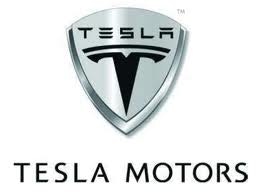At first glance, it might seem difficult to justify Tesla Motors Inc (NASDAQ:TSLA) forward P/E ratio of 117. But if you want to invest in game changers like this leading all-electric automaker, you’ll have to go beyond valuation metrics in your analysis. A careful examination reveals a compelling growth story, making it a great, and maybe even reasonably priced, stock despite its astronomical valuation.
Here are four key reasons Tesla’s valuation isn’t fluff:
1. Insider confidence
Only three months ago, Tesla Motors Inc (NASDAQ:TSLA) stock traded at just $35 per share. After a mind-boggling gain of almost 200%, shares are significantly more expensive today, at about $104 per share. The meteoric rise, however, didn’t faze co-founder and CEO Elon Musk. At $92.24, he purchased 1,084,129 shares, making the $100 million purchase the company’s largest insider buy on record. Musk certainly isn’t lacking confidence in his company’s monstrous valuation.
2. Colossal growth
Even if Musk is bullish on Tesla Motors Inc (NASDAQ:TSLA) stock, what on earth could merit a forward P/E ratio of 117? It’s going to take some serious growth. Fortunately, Tesla has that down pat.
Sales were up 83% from Q4 2012 to Q1 2013. From the year-ago quarter, sales were up a whopping 1,770%. This puts Tesla on par with makers of popular luxury cars. For instance, in the first quarter Tesla Motors Inc (NASDAQ:TSLA)’s Model S outsold Daimler‘s Mercedes-Benz S-Class, the BMW 7 Series, and Volkswagen‘s Audi A8.
While tougher comparisons will make impressive growth like this much harder to sustain going forward, there’s still potential for outstanding growth. Musk says that the company is planning to get a $30,000 Tesla model to market as early as three to four years from now. Obviously, this would dramatically expand Tesla Motors Inc (NASDAQ:TSLA)’s addressable market. According to Musk, it would mean a couple hundred thousand additional cars per year.
Plus, the company still only sells in North America. Europe and Asia could present significant upside to sales if Tesla succeeds in marketing its cars in these regions in the future.
3. Remarkable operational feats
Tesla’s manufacturing process has continued to improve, as the company reports reduction in “the hours required to build a car by almost 40% from December to March.” Feats like this helped the company boost total gross margin from 8% in Q4 2012 to 17% in Q1 2013. By comparison, Ford Motor Company (NYSE:F)‘s gross margin in Q1 was 16.21%.
4. Tesla makes great cars
That’s an understatement. Consumer Reports says the Tesla Motors Inc (NASDAQ:TSLA) Model S performance is “off the charts.” The car earned a score of 99 out of 100 in the magazine’s tests, the highest score Consumer Reports has ever given.
What about the one point it did not receive? Consumer Reports wasn’t two fond of the six hours it took to charge the battery. But tomorrow Tesla plans to show “a way for the Tesla Model S to be recharged faster than you could fill a gas tank,” according to a tweet from Musk. The June 20 event will show off a “live pack swap,” he says.
But what about competition?
The easy bear argument against Tesla is that there are many better-capitalized competitors that are able to achieve far greater scale, ready to pounce on any significant opportunity in the electric car market. But there’s a sound rejoinder to this argument: Tesla is cheering for competition. As Musk recently said, “I hope we are surrounded by electric cars by other manufacturers.”

Source: All Things Digital.
Competition will bring on greater electrification of transportation, making electric cars a significant segment of the industry. In that scenario, Tesla will benefit not only as an automaker but also as a supplier of electric car parts and technology to other automakers.





